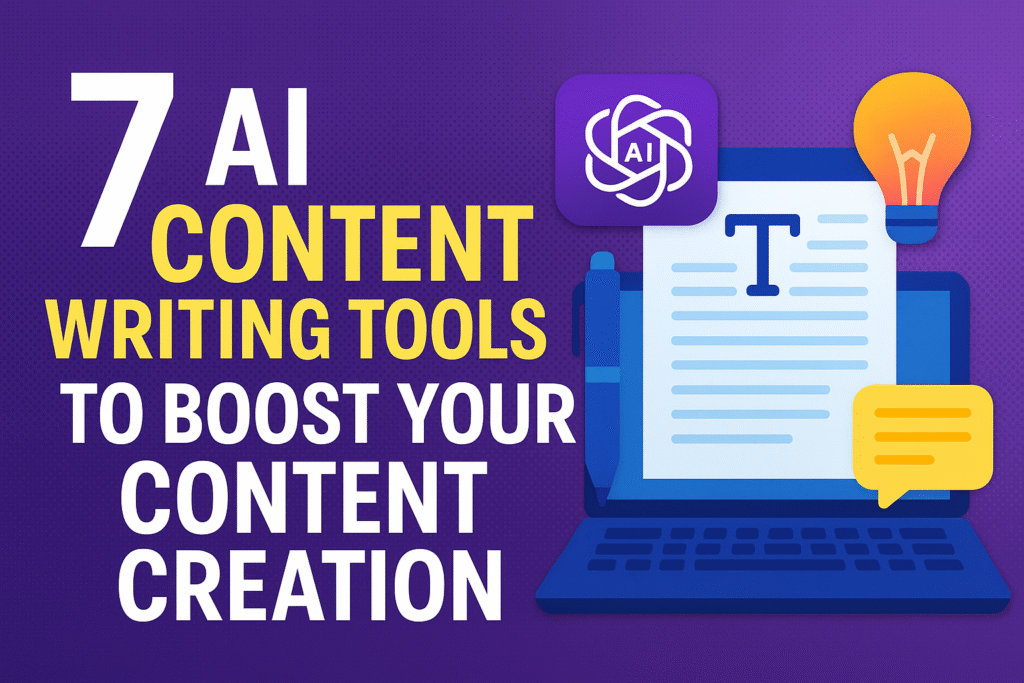AI and Its Impact on Everyday Life: Revolutionizing How We Live and Work

Artificial Intelligence (AI) has increasingly become an integral part of our daily lives, influencing nearly every industry and changing the way we interact with technology. From simple conveniences like virtual assistants to complex systems that drive advancements in healthcare and transportation, this technology’s impact on everyday life is vast and undeniable. In this article, we’ll delve into how intelligent systems are revolutionizing our world and reshaping daily routines, from work and entertainment to healthcare and smart homes.
1. How Artificial Intelligence is Enhancing Personal Assistance

One of the most visible impacts of AI in everyday life is through virtual assistants like Siri, Alexa, and Google Assistant. These automated systems have transformed how we perform routine tasks. Whether it’s setting reminders, checking the weather, or controlling smart devices, these tools provide a level of convenience that was once unimaginable. They are making technology more accessible to people of all ages, offering hands-free control and making daily tasks easier to manage.
With these technologies, virtual assistants can learn from users’ habits and preferences. For instance, your assistant can suggest the fastest route to work based on your previous commutes or automatically adjust your home’s thermostat based on your usual settings. This personalization ensures that the use of these automated systems makes everyday life smoother and more tailored to your needs.
For more about how AI can help streamline personal tasks, check out How AI Works in Virtual Assistants from TechRadar.
2. AI in Healthcare: A Game-Changer for Patients and Doctors

In healthcare, AI is changing the way medical professionals diagnose and treat patients. AI algorithms can analyze large sets of medical data, such as medical images or patient history, more quickly and accurately than humans. This helps doctors identify diseases early, leading to better patient outcomes. For example, AI tools are being used in oncology to detect cancer from medical images with a high level of precision.
Additionally, AI-driven chatbots are playing a significant role in mental health care. These tools offer immediate, accessible help to individuals experiencing emotional distress, helping them manage their mental well-being between therapy sessions. The ability of AI to offer personalized healthcare recommendations is setting the foundation for a more efficient, preventative, and patient-focused medical system.
For more insights into AI and its medical applications, visit AI in Healthcare from HealthIT.gov.
3. Smart Homes Powered by AI

Another significant area where AI is having a profound impact is in smart homes. Thanks to AI, we now have homes that can anticipate our needs and preferences. Smart thermostats, like Nest, learn your temperature preferences and adjust automatically, optimizing both comfort and energy efficiency. AI-powered security systems can recognize faces and unusual activity, providing enhanced safety measures without the need for constant monitoring.
Furthermore, AI integration in home appliances, such as fridges, washing machines, and lights, allows them to work more intelligently. For instance, an AI-powered refrigerator can track what’s inside and suggest recipes based on its contents or even automatically reorder products that are running low. This level of automation reduces time spent on mundane household tasks and adds a layer of convenience to our lives.
If you’re interested in exploring smart home technology further, check out The Future of Smart Homes on CNBC.
4. AI’s Impact on Transportation: Autonomous Vehicles and Traffic Optimization

AI is transforming the transportation industry, especially with the advent of autonomous vehicles. Self-driving cars, powered by AI, are set to revolutionize how we commute. These vehicles use AI to interpret data from sensors and cameras, allowing them to navigate streets without human intervention. This technology has the potential to reduce traffic accidents, improve traffic flow, and make transportation more accessible for people with disabilities.
In addition to autonomous vehicles, AI-powered navigation apps, such as Google Maps and Waze, help us get to our destinations faster. These apps analyze real-time traffic data, providing optimal routes and even predicting traffic conditions, all of which improve efficiency in daily commuting. Furthermore, AI also plays a role in optimizing public transportation systems, ensuring that buses and trains are running on time and efficiently managing traffic congestion.
To learn more about how AI is revolutionizing transportation, check out The Impact of AI on Transportation on Forbes.
5. Personalized Shopping with AI

AI has also revolutionized e-commerce, transforming the shopping experience into something more personalized and intuitive. Online retailers like Amazon and eBay use AI to track browsing and purchasing habits, which allows them to recommend products that are highly relevant to individual users. This personalized approach increases sales for businesses and enhances the shopping experience for consumers.
For example, when you visit an online store, AI algorithms assess your browsing history and make suggestions based on your previous purchases or interests. Additionally, AI chatbots are used to provide immediate customer support, answering questions about products, processing orders, and resolving issues—ensuring a seamless shopping experience.
Learn more about how AI is shaping e-commerce by reading AI in E-Commerce on Shopify.
6. AI-Driven Entertainment: Personalized Content Recommendations

In the realm of entertainment, AI is constantly reshaping the way we consume media. Platforms like Netflix, Spotify, and YouTube use AI algorithms to recommend content based on our viewing or listening history. This ability to personalize recommendations makes it easier for users to discover new shows, movies, or music without having to search through endless options.
AI is also being used in content creation. For example, AI-generated music, video editing tools, and even AI scripts are being used to create new forms of media. Deepfake technology, powered by AI, has sparked both excitement and controversy, highlighting the ability to manipulate media in new ways.
To explore the future of AI in entertainment, check out AI in Content Creation on The Verge.
7. Education Enhancement Through AI Technologies

AI is also playing an important role in education. Tools like personalized learning platforms can adapt to each student’s needs, helping them learn at their own pace. AI systems can evaluate students’ strengths and weaknesses and offer customized lessons, providing more targeted educational support.
Additionally, AI-powered tutoring systems are becoming more prevalent, offering students instant help with homework and personalized feedback. This can be especially beneficial for students who need extra assistance outside of regular class hours. As a result, AI is helping to bridge educational gaps and enhance learning outcomes.
To delve deeper into AI‘s impact on education, read AI in Education from EdTech Magazine.
8. Customer Service Revolutionized by AI

Many businesses are now using AI-driven customer service solutions to handle customer queries and complaints. AI chatbots are employed by companies like Bank of America and Sephora to answer frequently asked questions, resolve issues, and process transactions. AI in customer service ensures quicker response times and allows businesses to operate more efficiently.
In addition to chatbots, AI is also used in analyzing customer feedback, helping businesses improve their products and services. By leveraging AI’s ability to analyze large datasets, businesses can gain insights into customer preferences, which allows them to personalize their offerings and enhance the overall customer experience.
For a more comprehensive look at AI in customer service, check out AI Customer Service on CIO.
9. Workplace Automation and AI

AI is gradually transforming the workplace by automating repetitive tasks, allowing employees to focus on more creative and strategic aspects of their jobs. For example, AI is used in data entry, scheduling, and customer support, automating mundane tasks that would otherwise consume valuable time.
Furthermore, AI-powered systems are helping businesses make better decisions by analyzing large amounts of data quickly and providing insights that would be difficult for humans to uncover. This has the potential to increase productivity and improve decision-making across various industries.
Learn more about AI in the workplace by visiting AI Workplace Automation on Forbes.
10. AI and Security: Enhancing Safety in the Digital and Physical World

AI is also enhancing security in various sectors. Facial recognition technology is being implemented in airports, smartphones, and even at borders to ensure safe and efficient identification processes. AI can analyze live surveillance footage to detect suspicious behavior and alert authorities, improving public safety.
Moreover, in the digital world, AI plays a crucial role in cybersecurity. AI systems analyze patterns of online behavior, helping to identify potential cyber threats such as hacking attempts or phishing scams. By detecting these threats early, AI can help prevent data breaches and safeguard personal information.
To further explore AI in security, check out AI in Cybersecurity on CSO Online.
ALSO SEE: Hamak Gold Joins Bitcoin Treasury Trend: A Strategic Pivot Towards Digital Assets
AI’s Ubiquitous Impact on Our Lives
AI is no longer a distant futuristic concept—it’s a technology that’s deeply embedded in our daily lives, impacting everything from how we work to how we relax. As AI continues to evolve, it will likely unlock even more potential, making our lives more connected, efficient, and personalized. While there are challenges, such as ethical considerations and job displacement, the positive impact of AI in everyday life cannot be ignored. The future promises a world where AI plays an even more central role in improving the quality of life for individuals worldwide.

